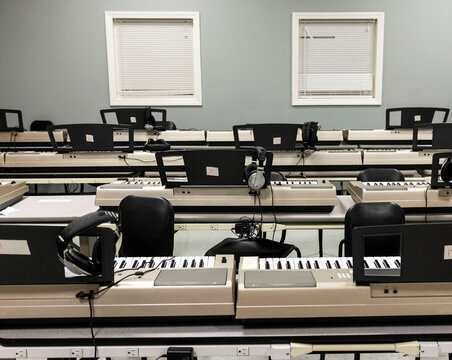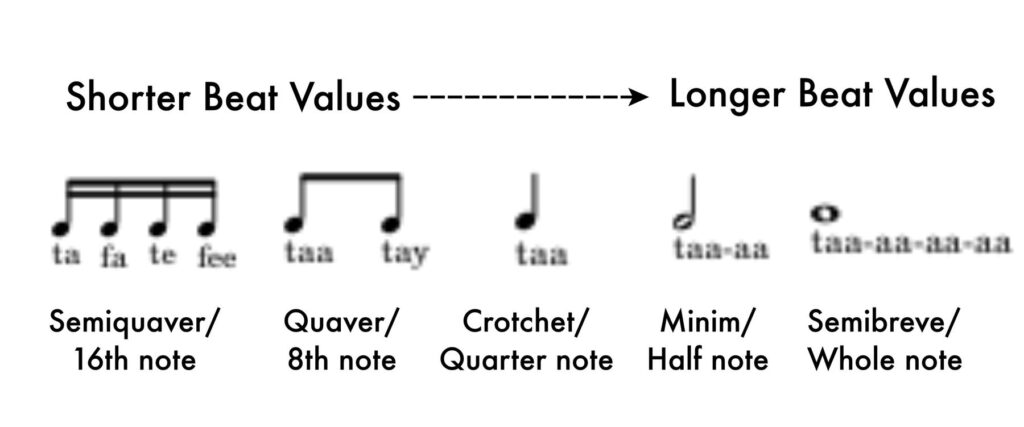Community colleges with music production programs offer a unique and affordable option for students seeking hands-on music production education. These programs provide a space for students to learn the fundamentals of music production, gain practical experience, and develop their skills in a supportive environment. Not only are community colleges with music production programs more cost-effective than other types of institutions, but they also offer smaller class sizes and personalized attention from instructors. In this article, we will explore the benefits of pursuing music production education at community colleges, the types of programs available, and the various career opportunities that await graduates.
Table of Contents

The Importance of Industry Connections in Music Production Education
Industry connections can be incredibly valuable for students pursuing music production education. By networking with professionals in the field, students can gain insights into the industry and make connections that could lead to future job opportunities. Community colleges with music production programs often have partnerships with local studios and record labels, as well as alumni networks that can help students make valuable connections in the industry.
Types of Industry Connections Available to Students
Community colleges with music production programs offer a variety of opportunities for students to make industry connections. Some of the most common types of connections include:
Internships
Students can gain hands-on experience and make valuable connections through internships at local recording studios, record labels, and other music industry organizations.
Guest Speakers
Community colleges often invite industry professionals to speak to students about their experiences and provide insights into the field.
Alumni Networks
Many community colleges have alumni networks that can help students connect with professionals in the music industry.
Examples of Community Colleges with Strong Industry Connections
Here are a few examples of community colleges with strong industry connections in music production education:
| Community College | Location | Industry Connections |
|---|---|---|
| Nashville State Community College | Nashville, Tennessee | Partnerships with local studios and record labels, as well as an alumni network that includes many successful music industry professionals. |
| City College of San Francisco | San Francisco, California | Strong internship program that connects students with local music industry organizations. |
| Valencia College | Orlando, Florida | Music Production and Sound Technology Advisory Board made up of local industry professionals who provide guidance and support for students. |
Making industry connections can be an important part of pursuing a career in music production. Community colleges with music production programs offer students many opportunities to make these connections, including internships, guest speakers, and alumni networks. By taking advantage of these opportunities, students can gain valuable insights into the industry and make connections that could lead to future job opportunities.

Benefits of Pursuing Music Production Education at Community Colleges
Affordability Compared to Other Institutions
Pursuing music production education at a community college has a significant financial advantage over other types of institutions. Community colleges have lower tuition fees compared to traditional four-year colleges and universities. They also offer scholarships and financial aid to students who require financial assistance. This is particularly important for students who want to pursue a career in music production but cannot afford the cost of education at other institutions.
Hands-On Training and Practical Experience
Community colleges offer hands-on training and practical experience to music production students. With smaller class sizes, students receive more personalized attention from experienced professionals in the music industry. Moreover, community colleges have state-of-the-art recording studios and other equipment that students can use to gain practical experience in music production. This enables students to learn by doing and to gain the skills they need to succeed in the industry.
Personalized Attention from Instructors
Smaller classes in community colleges offer an opportunity for students to receive more personalized attention from their instructors. Music production students can benefit from the experience of instructors who are professionals in the industry. This one-on-one instruction enables students to ask questions, receive feedback on their work, and learn from the experience of their professors. With personalized attention, students can develop their skills to a higher level and become successful in the music production industry.
Music Production Courses at Community Colleges
Community colleges offer a variety of music production courses, including diploma, certificate, and associate degree programs. These programs are designed to provide students with a solid foundation in music production and related fields.

Types of Music Production Programs
- Diploma Programs: The shortest and least expensive option, offering a basic introduction to music production.
- Certificate Programs: Slightly longer and more in-depth, providing students with a more thorough understanding of music production techniques and equipment.
- Associate Degree Programs: The most comprehensive option, providing students with a solid foundation in music production and related fields.
Course Requirements and Curriculum
The specific course requirements and curriculum for music production programs at community colleges will vary depending on the institution and the type of program. However, in general, students can expect to take courses in music theory, recording techniques, music software, and studio management. Some programs may also offer courses in music business, performance, and composition.

Examples of Community Colleges Offering Music Production Courses
Here are some examples of community colleges that offer music production courses, including their locations and program details:
| College | Location | Program |
|---|---|---|
| Los Angeles City College | Los Angeles, California | Associate of Arts degree in music production that covers topics such as recording engineering, music theory, and digital audio production. |
| Austin Community College | Austin, Texas | Music Business, Performance and Technology program that includes courses in music production, audio engineering, and digital audio workstation software. |
| Lane Community College | Eugene, Oregon | Music Technology program that includes courses in music production, music software, and sound reinforcement. |
Benefits of Pursuing Music Production Courses at Community Colleges
When it comes to pursuing music production education, community colleges offer a number of advantages over other types of institutions:
- Affordability compared to other types of institutions for music production education
- Hands-on training and practical experience offered in music production programs at community colleges
- Advantages of smaller class sizes and more personalized attention from instructors in music production programs at community colleges

Affordable Music Production Education
Many students interested in pursuing music production education find the cost of attending traditional four-year colleges and universities to be a major obstacle. However, community colleges with music production programs offer a more affordable option that can help students achieve their goals without breaking the bank. In this section, we will explore the reasons why community colleges are a more cost-effective choice for students.
Lower Tuition and Fees
One of the most significant advantages of attending community colleges for music production education is the lower tuition and fees. According to the College Board, the average cost of tuition and fees at a public two-year college in the 2020-2021 academic year was $3,770. In comparison, public four-year colleges and universities charged $10,560 for in-state tuition. By attending a community college, students can save thousands of dollars on their education.
Financial Aid
Community colleges offer a variety of financial aid options to help students pay for their education. These options include scholarships, grants, and loans, as well as work-study programs that allow students to earn money while gaining valuable experience in the field.
Local Residency
Many community colleges offer lower tuition rates for students who live in the same state as the school. This can make attending a community college an even more affordable option for students looking to pursue music production education.
Smaller Class Sizes and Personalized Attention
Community colleges with music production programs often offer smaller class sizes and more personalized attention from instructors. This can be a significant advantage for students who want to receive individualized instruction and feedback on their work.
By attending a community college for music production education, students can acquire the skills and experience they need to pursue a career in the field without taking on a lot of debt. With lower tuition and fees, financial aid options, and personalized attention from instructors, community colleges offer an affordable and valuable option for students passionate about music production.

Community College Music Technology Programs
Music technology is a field that encompasses a wide range of tools and techniques, including audio engineering, sound design, and music software, that involves the use of technology to create, record, and produce music. It is an essential part of the process of creating and recording music and closely related to music production.
Community colleges offer a variety of music technology programs that can be a great option for students interested in pursuing a career in music production. The most common types of music technology programs offered include audio engineering and production, sound design, and music business.
The course requirements and curriculum for music technology programs at community colleges may vary depending on the institution and the type of program. However, in general, students can expect to take courses in music software, audio engineering, sound design, and music business. Some programs may also offer courses in topics such as music theory, composition, and performance.
Some examples of community colleges that offer music technology programs include:
- Valencia College in Orlando, Florida: This school offers an Audio Technology program that includes courses in recording technology, music production, and sound design.
- Fullerton College in Fullerton, California: This school offers a Music Technology program that includes courses in music software, audio engineering, and sound reinforcement.
- North Shore Community College in Danvers, Massachusetts: This school offers a Music Business and Technology program that includes courses in music production, music software, and sound design.
Compared to other types of institutions, community colleges offer numerous benefits to students pursuing music technology programs. These benefits include affordability, hands-on training and practical experience, as well as smaller class sizes and more personalized attention from instructors.

Hands-On Music Production Training
Music production is a hands-on field, and practical experience is essential for success in this industry. Community colleges offer a variety of hands-on training opportunities for music production students, allowing them to gain important practical skills in a real-world setting.
The Importance of Hands-On Training in Music Production Education
Hands-on training is an essential component of a music production education. It allows students to work with equipment and software in a professional environment, simulating real-world scenarios. By providing hands-on training, community colleges give students the opportunity to make mistakes and learn from them, which helps build their confidence and skills.
Types of Hands-On Training Available at Community Colleges
Community colleges offer a variety of hands-on training opportunities for music production students, including:
-
Studio recording sessions: Students can work in a professional recording studio to learn the ins and outs of recording and producing music.
-
Live sound reinforcement: Students can learn how to mix and amplify live music performances, which is an essential skill for many music production professionals.
-
Post-production techniques: Students can learn how to edit and manipulate recorded music using software such as Pro Tools and Logic Pro.
Equipment and Software Used in Music Production Programs at Community Colleges
Community colleges often provide state-of-the-art equipment and software for music production students. This equipment can include recording software, mixing consoles, microphones, and other tools that are essential for producing high-quality music.
Examples of Community Colleges That Offer Music Production Hands-On Training
Some examples of community colleges that offer hands-on music production training include:
-
Berklee College of Music in Boston, Massachusetts: This school offers a Music Production and Engineering program that includes hands-on training in recording techniques, mixing, and mastering.
-
Mesa Community College in Mesa, Arizona: This school offers a Recording Arts and Music Technology program that includes hands-on training in music recording and production.
-
Shoreline Community College in Seattle, Washington: This school offers a Music Technology program that includes hands-on training in music software, recording, and sound reinforcement.
Benefits of Hands-On Music Production Training at Community Colleges
Hands-on music production training at community colleges offers several advantages over other types of institutions. These advantages include access to state-of-the-art equipment and software, smaller class sizes, and more personalized attention from instructors. By providing hands-on training, community colleges help students develop the practical skills they need to succeed in the music production industry.

Exciting Career Paths for Graduates of Community College Music Production Programs
Graduates of community college music production programs are well-prepared for exciting careers in the music industry. In this section, we will explore some of the career paths available to graduates of these programs, as well as the job outlook and salary expectations for music production professionals.
Audio Engineer
Audio engineers are responsible for recording and mixing music in a studio setting. They work with artists to create high-quality recordings that sound great on a variety of audio systems. Graduates of community college music production programs are well-prepared for careers as audio engineers, with the knowledge and skills needed to operate recording equipment and software, as well as a strong understanding of music theory and composition.
Music Producer
Music producers oversee the production of a recording, working with artists to create a cohesive sound. They are responsible for everything from song selection to final mixing, and must have a strong understanding of music production techniques and equipment. Graduates of community college music production programs are well-suited for careers as music producers, with the knowledge and skills needed to produce high-quality recordings and work effectively with artists.
Sound Designer
Sound designers create sound effects and other audio elements for film, television, and other media. They must have a strong understanding of audio software and equipment, as well as a creative approach to sound design. Graduates of community college music production programs are well-prepared for careers as sound designers, with the knowledge and skills needed to create innovative and engaging audio elements.
Job Outlook and Salary Expectations
According to the Bureau of Labor Statistics, employment of music directors and composers is projected to grow 3 percent from 2019 to 2029, which is about as fast as the average for all occupations. The median annual wage for music directors and composers was $51,670 in May 2020. Salaries can vary depending on the specific job and location, but graduates of community college music production programs are well-prepared for careers in this growing field.
With exciting career paths and strong job prospects, graduates of community college music production programs are well-positioned for success in the music industry. By gaining the knowledge and skills needed to succeed in careers as audio engineers, music producers, or sound designers, these graduates can make a meaningful impact in the field of music production.
Check out our other content for more insights on music education and career opportunities in the music industry.


